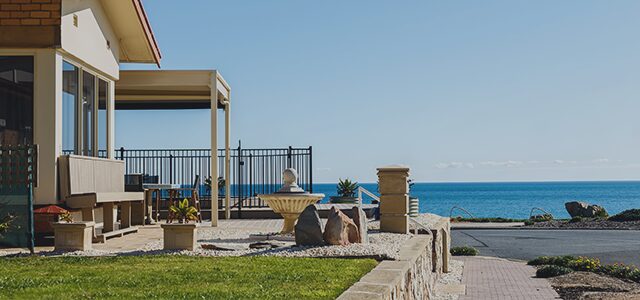In this article:

Those summer holiday feels have many of us thinking about what it would be like to live this life all year round. But a sea change is much more than a holiday, and you should be ready to put in some serious thought and planning before making the move.
Why do you want to move?
The cheaper cost of living and bargain-basement real estate prices were once motivating factors for a move away from the city. But with sea changes becoming more popular in recent years, property prices have been rising steadily. So, it’s important to be clear about your reasons for moving because the cost benefits might not cut it anymore.
Are you looking for?
- Work/life balance
- Sense of community
- Slower pace
- Reconnect with nature
- Better lifestyle
- Adventure.
These are all common reasons for making a major move like this. But, they won’t magically happen with a change of scenery, you’ll need to prioritise them if that’s what’s important to you.
Consider your family’s needs and existing lifestyle
When you’re searching for a new home town, you need to look beyond the holiday vibes.
- Do you need specialised health or medical care?
- Can you continue your hobbies in your new location?
- Are you the type of person to make new friends?
- How important is your current social/family network?
- Are there good quality day care centres and schools for your children?
- Do the leisure and entertainment options suit your family?
- Is mobile reception and internet connectivity suitable for work and school at home?
The sun doesn’t always shine
We mean this literally and figuratively! It’s important to visit the town at different times of the year to really get a feel for what it’s like. You might even find that the busy tourist season is a little frustrating as a permanent resident. And as more and more people make the same decision as you, that sleepy little beachside town of your dreams could end up closer to the city version you left behind.
Where will you work?
People used to wait until retirement to make their sea-change but with COVID-19 changing the way we work and live, it’s now turning into a viable option for many more. But it means that the younger sea-changers who haven’t retired will still have mortgages and bills to pay. Living in a smaller community may mean that job opportunities are limited. Here’s how you can earn a crust.
Work from home – Ask your employer for a permanent change to your work location or find a new remote position (which are becoming more and more popular).
Commute – Many sea change locations are within reasonable commuting distance of major cities and towns.
Work for yourself – Start a business or take on remote contract or freelancing work.
Find a local job – If there aren’t many jobs in your industry, it could be time to try something new.
- Useful reading: A guide to home loans for the self-employed
Try before you buy
There’s nothing wrong with testing the lifestyle change before committing to buy a property. Rent first and get a feel for the place. Remember that settling in might take time. And if it doesn’t work out – head back to your city digs or country town and appreciate the experience for what it was. Sometimes we need to see if the grass really is greener.
Buying in a new location
Many people choose their new hometown based on places they’ve stayed before on holidays – but what if you’re looking to make a big move interstate? It can be daunting trying to find your perfect home with only the use of an online real estate ad. Engaging a buyer’s agent or speaking to a local Yellow Brick Road mortgage broker could give you some added comfort about buying in this way.
Last piece of advice
Although you might be buying in a holiday location, take the emotion out of the purchase process. Do your research, be objective and ensure you pay a fair price that is relative to market conditions in the area.
Thinking about a sea change? At Yellow Brick Road, we want to help you find what you’ve been looking for. Have a chat with one of our mortgage brokers today.

 Contact Us
Contact Us Find a Broker
Find a Broker